Ethereum Case Study – Understanding What, Who, Why, When, and How - Part 1 (What)
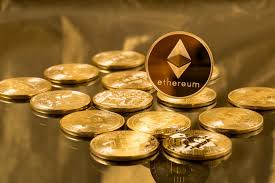
A couple of posts ago, I did a case study on Ripple. It was a great personal exercise, as it helped me understand Ripple a lot better. Although, not a expert, it helps frame one’s understanding of each cryptocurrency and provide some context or framework about whether one should invest or avoid. As someone who is still trying to get up to speed on the whole Cryptocurrency space, I wanted to share some of the things that I’ve been learning about Ethereum.
What do we know about Ethereum? Here is what googling on the internet produced. Note, I’m sure most of you who have been watching CNBC, MSNC, Money, Coindesk, and all other media channels already know about Ethereum but to those that have been living under a rock, like myself (and those who are not in the know)….
Question: What is Ethereum?
Summary:
• Launched in 2015, the value of ether (ethereum's currency) has increased rapidly. It suffered a set back before Christmas 2017, suddenly dropping from $850 to around $690 - a drop of about 20 per cent. Since then it has continued to show intense volatility, hitting highs of $1400 in January before slumping to less than $750. - its back now around $866
• Bitcoin vs. Ethereum: While bitcoin aims to disrupt PayPal and online banking, ethereum has the goal of using a blockchain to replace internet third parties — those that store data, transfer mortgages and keep track of complex financial instruments.
• As much as Ethereum and bitcoin do share some similarities though, the two platforms have different goals. Where bitcoin is strictly a digital currency, designed to function as a means of payment or a store of value, Ethereum takes a grander approach. Ethereum functions as a platform through which people can use Ether tokens to create and run applications and, more importantly, smart contracts.
• In short, ethereum wants to be a 'World Computer' that would decentralize – and some would argue, democratize – the existing client-server model.
• With ethereum, servers and clouds are replaced by thousands of so-called "nodes" run by volunteers from across the globe (thus forming a "world computer").
• The vision is that ethereum would enable this same functionality to people anywhere around the world, enabling them to compete to offer services on top of this infrastructure.
• For example, going through a typical app store, you’ll see a variety of colorful squares representing everything from banking to fitness to messaging apps. These apps rely on the company (or another third-party service) to store your credit card information, purchasing history and other personal data.
• Your choice of apps is of course also governed by third parties, as Apple and Google maintain and curate or sensor the specific apps you download.
• Take the example of an online document service like Evernote or Google Docs.
• Key Point - Ethereum, if all goes according to plan, would return control of the data in these types of services to its owner and the creative rights to its author.
• Key Point - The idea is that one entity will no longer have control over your notes and that no one could suddenly ban the app itself, temporarily taking all of your notebooks offline. Only the user can make changes, not any other entity.
• At its simplest, Ethereum is an open software platform based on blockchain technology that enables developers to build and deploy decentralized applications.
• Until relatively recently, building blockchain applications has required a complex background in coding, cryptography, mathematics as well as significant resources. Previously unimagined applications, from electronic voting & digitally recorded property assets to regulatory compliance & trading are now actively being developed and deployed faster than ever before. By providing developers with the tools to build decentralized applications, Ethereum is making all of this possible.
• At its simplest, Ethereum is an open software platform based on blockchain technology that enables developers to build and deploy decentralized applications.
Is Ethereum similar to Bitcoin? Well, sort of, but not really.
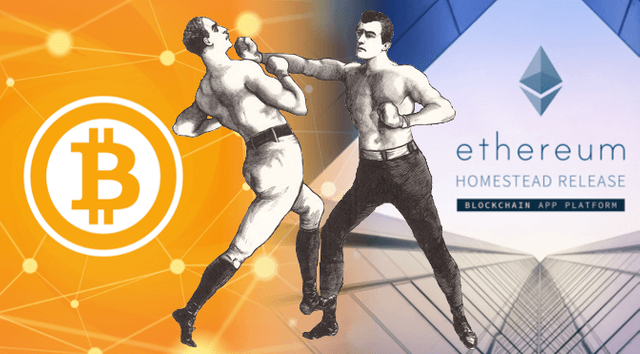
• Like Bitcoin, Ethereum is a distributed public blockchain network. Although there are some significant technical differences between the two, the most important distinction to note is that Bitcoin and Ethereum differ substantially in purpose and capability.
o Bitcoin offers one particular application of blockchain technology, a peer-to-peer electronic cash system that enables online Bitcoin payments. While the Bitcoin blockchain is used to track ownership of digital currency (bitcoins),
o the Ethereum blockchain focuses on running the programming code of any decentralized application.
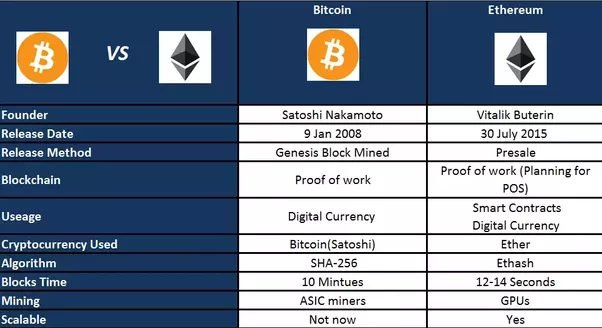
• In the Ethereum blockchain, instead of mining for bitcoin, miners work to earn Ether, a type of crypto token that fuels the network. Beyond a tradeable cryptocurrency, Ether is also used by application developers to pay for transaction fees and services on the Ethereum network.
SMART CONTRACTS
• KEY PART OF ETHEREUM – It is creating SMART CONTRACTS
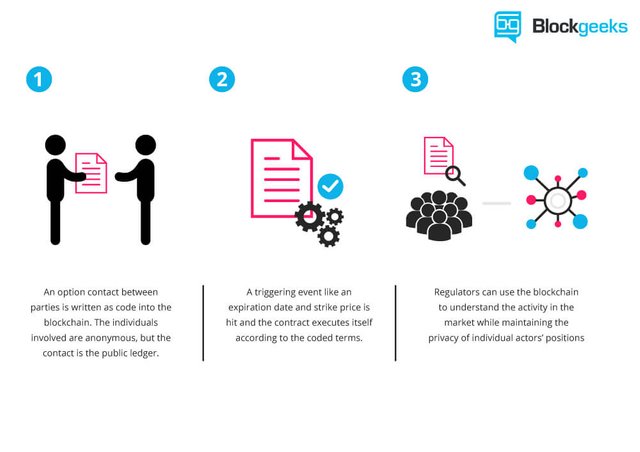
• What is a smart contract? Smart contract is just a phrase used to describe computer code that can facilitate the exchange of money, content, property, shares, or anything of value. When running on the blockchain a smart contract becomes like a self-operating computer program that automatically executes when specific conditions are met. Because smart contracts run on the blockchain, they run exactly as programmed without any possibility of censorship, downtime, fraud or third party interference.
• Smart contracts are contracts written in code, which the creator(s) upload to the blockchain. Any time one of those contracts is executed, every node on the network runs it, uploaded to the blockchain; thus, it is stored in the public ledger, theoretically tamper-proof.
• Smart contracts are essentially structured as ‘If-then’ statements.When certain conditions are met, the program carries out the terms of the contract.
• As an example, say you want to rent a car from a service that uses Ethereum. A smart contract is generated, stipulating that if you send the required amount of funds, then the service will send you a digital key to unlock the car. The process is carried out on the blockchain, so when you send the Ether tokens, everyone on the network can see that you did so. Likewise, when the rental service sends you the key to unlock the car, everyone will see it. In this scenario, the contract might state that if the service does not send you the key, the tokens are refunded.
• Since every computer on the network is keeping track of this transaction through the blockchain, there is no way to tamper with it. If someone altered the details of the contract, every copy of the digital ledger would note it.
• Every program on Ethereum uses a distinct amount of processing power. This is why every contract and program on Ethereum is given a cost in “gas.” Gas is a measurement of how much processing power the program will require, and the higher the gas requirement, the more Ether tokens the user will need to spend.
• KEY POINT - One of the commonly cited advantages of smart contracts is that there is no need for “middlemen” like lawyers or notaries. In theory, this means that you can carry out transactions without the waiting times inherent to paper filings, and without paying fees to whoever would typically oversee such a transaction. This is particularly important for people living in countries where the legal system is corrupt, or woefully inefficient. - Think Venezuela, Cuba, African countries like Zimbabwe, and China etc.
• Of course, the automation means that, if something goes wrong — if, for example, there is a bug in the code of the smart contract — the blockchain will still carry out the terms of the contract, which could be problematic.
• While all blockchains have the ability to process code, most are severely limited. Ethereum is different. Rather than giving a set of limited operations, Ethereum allows developers to create whatever operations they want. This means developers can build thousands of different applications that go way beyond anything we have seen before.
Key Takeaways:
• “[Blockchain] is to Bitcoin, what the internet is to email. A big electronic system, on top of which you can build applications. Currency is just one.”
• Ethereum is not like Bitcoin. They are not cousins. They are quite different
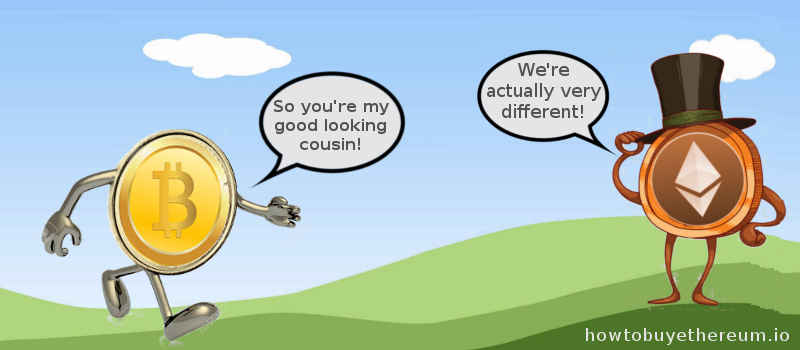
• Ethereum speaks to a larger community in that it has a direct impact on Applications that we download on our smartphones, iPads, and other uses (echo, Alexis, etc)
• Ethereum has a larger and more potential to impact the various industries, and could potentially exceed Bitcoin. A large reason for this is due to the Smart Contract offering that Ethereum does for all potential users. I think this is a truly valuable proposition.
• Although Bitcoin is currently utilized as a peer-to-peer offering, Ethereum can be a game changer in that firms can decentralize data storage. Imagine taking out Amazon, Google, Facebook, Apple out of the data storage business. All personal information can be controlled by yourself and no one else. Its pretty compelling.
• Smart Contracts are essentially Artificial Intelligence, in that once you set it up, they can fulfill orders and agreements (if all the information and actions have been satisfied). You can create online business and have all of it setup and work independently without much interference. It’s a very powerful concept.
Next Post, I’ll dig into more about Ethereum’s Virtual Machine, which is built on the Smart Contract. Also, we’ll talk about Ethereum’s hard fork, Ethereum classic.
Follow Me @epan35
Reply (with a good comment) and Upvote and I'll return the favor! I need Feedback!
Wow, great detail. I didn't know much about smart contracts, but that cleared things up significantly and really gave me a good idea of the scope of ethereum.
With how fast ETH is growing, have you looked into how they will accomplish scaling? That seems to be the biggest issue as of now, so my only worry is they will lose out to upcoming competitors who may have a tech advantage. Much like how myspace lost to FB and google became the best search engine, sometimes being early is a disadvantage
Thanks @Jakeybrown. I didn't know that either until I started researching. Smart Contracts do look like it could be the basis of new APP development. Not sure how ETH will expand. I'm still working through all my research. But hopefully, as I come across additional info, I'll share it. I suspect that a lot more firms will be adopting ETH as their primary platform. This adoption is predicated on if there are sufficient ETD /crpyto coders. I read that a Cryptocoder now is paid $200K. But there are not enough of them out there....2nd career????
Thanks for the feedback.
Holy! Time to go back to school haha! Thanks for the info, looking forward to more from you
Nice write up. If your are newer to crypto, another platform u may want to look into is NEO which is nickname the Chinese Ethereum. NEO and ETH are very similiar but there are a few areas where NEO slightly excels, also the Chinese market is know to favor its own technology and programs which gives NEO a huge advantage in the Asian market. Also, NEO is currently just over $100 while Ethereum is around $850 so the upside on NEO can be huge.
Thanks. I'm still trying to get up to speed and learn more. Hopefully, I can tackle that soon.
I hope you see this as constructive feedback:
can Blockchains really "process code?"
when blockchain is a type of data-structure (Blockchain is not the network!), can it be a technology?
What is really the Technology called DLT (distributed ledger technology?)
Ethereum and Bitcoin are Protocolls...also the whole Network is called "Ethereum" and "Bitcoin" but what is a network anyways (I mean the computer scientific and the network theoretic definition, not what the mainstream think it is)?
And is the super computer "Ethereum" (fast as a PC from the 80s) as a Unit/ a whole, the same as the Network?
upvote and resteem
Thanks @launch3d. All feedback are well received. By no means do I think of myself as a Tech/coder/expert on matters of technology. So, I do appreciate your thoughts and comments. I agree with you that Blockchain is not the end-all but I think what it does do is opens up the dialogue of potential.
I'm not familiar with your terminologies or the distinctions that you are making about Network, Technology, Protocols etc. I think what I was referring to is that with Smart Contracts, which is essentially a IF THEN statement, then in certain ways, it could process code. "AI" aka...Artificial Intelligence at the end of the day is based on the IF THEN statements...and Machine Learning is about layering multiple layers of IF THEN statements then, it is possible that Ethereum's offering of SMART CONTRACTS could potentially result in creating new versions of smart contracts etc. I think its all wonderful.....
Please feel free to correct me. I'm still learning. I've been talking to some my friends who have been working on APPLES self Driving Car which incorporates AI (my buddy came from JPL's MARS rover project) ...so I'm just using him as my point of reference.
I like your approach very much and I saw that you read the oaktree memos and that you are interested in alternative investing. Such an approach is all about inefficiencies in the markets, chances for inefficiencies in well informed, established markets are low. But here we have inefficencys, a big lack of knowledge even at the banksters level. Non trivial problems like the scaleability trilemma, people are not aware off. In the hedgefund sector (e.g. pantera, polychain) they have experts for every important aspect (Gametheory, one Smartcontract Expert, one Kryptography Expert) because they see the chance of using those inefficencys. You do your job pretty well and I think it will be easy for you to bring your studys to an advanced level. I dont think that we need to read code but we have to avoid the misconceptions. Marks was reciting Twain and i think it fits the Crypto "Investors" Space here on Steemit really well "It ain't what you don't know that gets you into trouble. It's what you know for sure that just ain't so."
You will find out about the terminologys, because you use your research as a exercise i dont want to disturb it right now, I will just follow your articles. The smartcontract part was fine
Very informative, I have never cared too much for Ethereum, probably due to my lack of knowledge, what are your thoughts regarding Ether vs NEO?
I haven't done much work on NEO. I plan to do more. Sorry, can't really say much. Thanks for the read/click and FEEDBACK!
I am a huge Ethereum fan. I think you will enjoy my Ethereum art :)
will leave you an upvote. Have a great day.
https://steemit.com/art/@debart/5-art-tributes-to-ethereum-my-favourite-block-chain-do-you-like-ethereum
check out the best new crypto tracker at https://hubwallet.io
....I made it from scratch so let me know if you have any questions or issues!
Thank you!
When you want to Flag them but see their Steem power lol

wow, such extensive studies. Well done!
Interesting article!
Checkout @cryptobroye for more bitcoin info and analysis. Im sure there's a lot we can learn from each other!
Really enjoyed this post keep posting this great content I just followed you 👍 keep up the good work have a great day